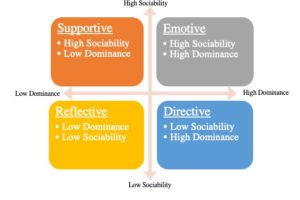Your Experience is Not Relevant
“I’m sorry, I just don’t see how this experience is relevant.”
This was the point I realized the interview was not going as well as I thought.
I was interviewing for an executive position with a large multinational. The position was in their Strategy division, creating decision support research for the Board of Directors. The team has a role in guiding the course of this company and its outsized impact on the American economy. It was enough to make me fold up my own company, and return to the rat race.
This was the second interview, the ‘behavior’ interview, with detailed scenarios, emotional intelligence probes, and ‘what if’ questions.
Prepare, Prepare, Prepare.
I studied for this interview like a student preparing for finals week: reviewing standard MBA knowledge, reading up on current industry trends, and preparing for all the standard, expected questions.
My answers were scripted, and well rehearsed. My skills were sharp. I knew my stuff. I was ready. I hadn’t studied this hard since my aircraft commander board. My confidence was soaring.
The SVP met me in the lobby, and escorted me to the conference room. No panel today, she was interviewing me 1-on-1. As the head of the division, she hand-selected every member of the team. And, she reported directly to the CEO.
She seemed pleased with my answers to the standardized, corporate-approved questions. Preparation paid off.
There was some negative body language when she realized all of my financial management experience was in government service. Not a good sign. But overall, things were going extremely well.
And finally, it happened.
“Tell me about a time when you’ve faced a stressful situation at work, and how did you handle it?”
I knew what NOT to say.
“I went from no aviation experience to Aircraft Commander in one of the most complex aircraft in the world, in just under 2 years, all while I was a single parent to 4 children, and one with cancer. I deployed on a ship the size of this building, working 12-hour days for 7 months.
At the end of every day, I would land a helicopter the size of a school bus on a pitching and rolling ship, often at night, in the dark, in the middle of the Pacific Ocean, with no alternate ‘divert’ airfields. If we failed, we all died, and my children would become orphans.
We had to be right the first time, every time.”
That’s pressure. That’s stress. And that’s what I knew NOT to say.

Here’s what I did say:
“There are hundreds of examples in my work experience of managing stress. Picking one would be difficult, because each one was more challenging than the last. There was one time when I discovered a risk management program we managed had a major flaw in the formula.
I had to tell a COO, the equivalent of my boss’s boss’s boss (3 layers up) the formula he created was wrong. It was very stressful, because this person had a lot of power and could negatively affect the careers of my entire division, including my boss.”
She asked for more information. A good sign! I give more details, and wove a captivating story about managing up, leading change, and dealing the immense pressure of challenging someone very senior in the organization. Everything was scripted to be clearly applicable to a team that works directly with the Board of Directors, and the CEO of a multinational company.
That is, until she found out the risk management program involved Helicopter Operations in the Navy, and not a large private sector corporate function, or product.
She stops me in a kind, pleasant voice, “I’m sorry, I just don’t see how that is relevant.”
“It’s a trap!”
OK. You got me. I fell for the Veteran trap. “Stressful” situations mean different things for those who trusted our lives to our colleagues. They even prepped us for this in all of the Transition training. Instead of a ‘lives on the line’ story, we need to come up with something more relatable, like working late or having an important deadline. Roger.

It’s relevant, because it involved all of the challenges listed in the job posting. It painted my skills in a good light, and showed how I would deal with similar challenges working on a team that works for the CEO, and manages enterprise-wide risk. I planned that way on purpose.
The message was scripted and rehearsed to ensure it sounded “corporate” and non-military. Still, the message was clear. If it was done in military service, it didn’t count. It wasn’t in the same industry as her company, or even in the same sector.
To be honest, I understand where she was coming from. At this level, they want (and deserve!) someone who has a strong grasp on their industry. No matter how strong my experiences were, they were not 100% in the industry. My military career constitutes 87% of my resume. If those years don’t count, my prospects were slim from the start, despite balancing ridiculously large budgets, enterprise-wide change management, and extensive personnel leadership experience.
In the Eye of the Beholder
This interview stung, but it taught me a critical lesson. My experience wasn’t irrelevant; it was my perspectiveon my experience that was irrelevant.
Unless the decision maker can see the value in what you have to offer, it has no value. All the resume editing and interview preparation in the world won’t help if you are in the wrong room.
No matter how well you think the position description fits your experience, it is still bound to happen. There are people who hold different opinions on what your experiences are worth. Wording your experience in their language is critical.
Still, it does not guarantee they will see it the same way.
Take it as a lesson that it is. Learn, adjust, revise, and re-attack.





You must be logged in to post a comment.